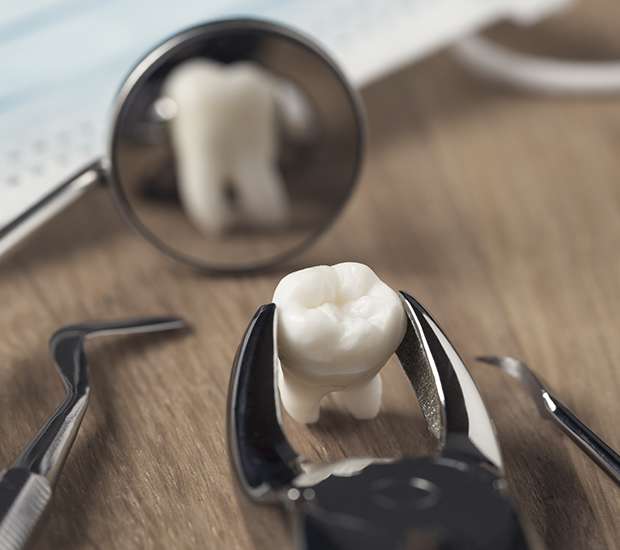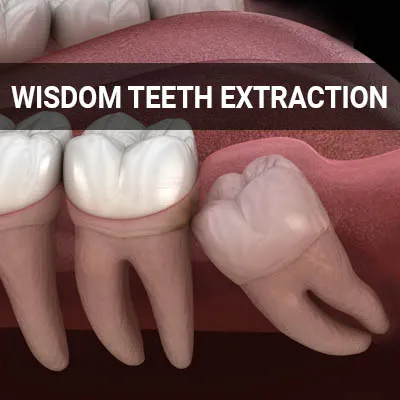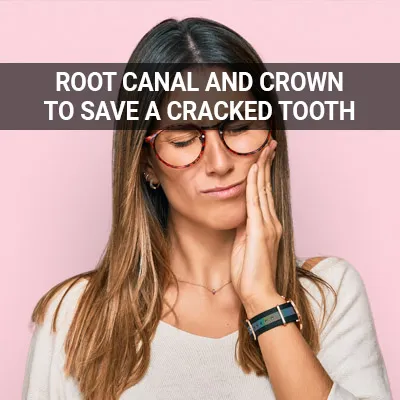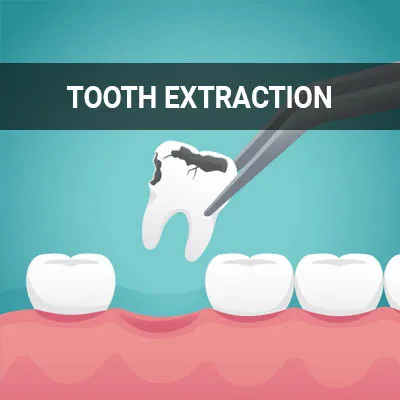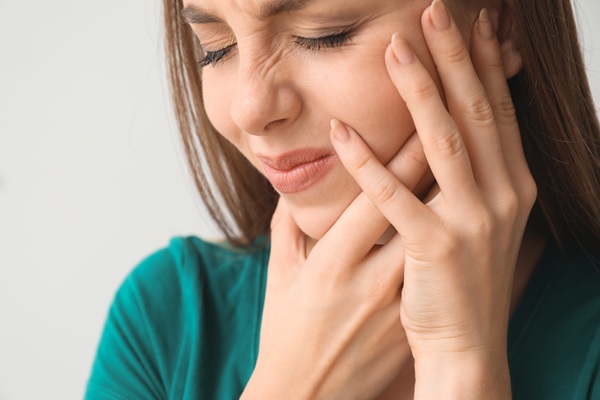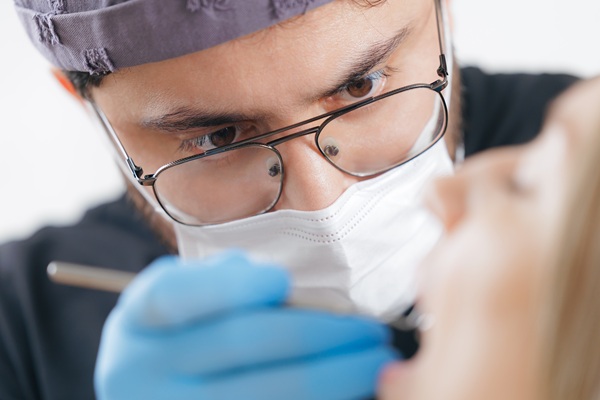When Is a Tooth Extraction Necessary Marina Del Rey, CA
Although it is best to preserve a natural tooth, there are times when a tooth extraction is necessary. An extraction may be the best option to maintain oral health due to trauma, disease, or crowding. Tooth extraction involves the complete removal of one or more teeth from the jaw bone.
Tooth extraction is available at Marina Advanced Dentistry in Marina Del Rey and the surrounding area. Our team can extract teeth gently and safely to preserve your oral health. Call us at (310) 773-5009 to learn more about our services or schedule an appointment.
A Normal Procedure
While it is best to preserve natural teeth, many reasons can necessitate tooth extraction. Sometimes a filling or crown is not enough to restore a tooth. The American Dental Association suggests the extraction of teeth that have suffered severe trauma, have extreme tooth decay or disease, or are crowding the surrounding teeth. It is also normal for patients to have an extraction or two before orthodontic treatment.
Many tooth extractions are relatively simple and performed in-office. For teeth that are visible about the gum line, we will numb the extraction site and remove the tooth with forceps. Broken or impacted teeth require a more involved procedure.
“The American Dental Association suggests the extraction of teeth that have suffered severe trauma, have extreme tooth decay or disease, or are crowding the surrounding teeth.”
Preventing Infection
According to the National Institute of Dental and Craniofacial Research, gum disease is the most common cause of tooth loss in adults. Gum disease occurs when bacteria get below the gum line and causes infections. Without treatment, oral bacterial leads to gum recession, damage to the jawbone, loose teeth, and even tooth loss.
Research has also shown chronic dental infections can cause inflammation that contributes to cardiovascular disease, stroke, and many other related diseases. While a root canal can often save a tooth from decay, sometimes a tooth is beyond saving due to lost structure and stability. Tooth extraction can prevent damaging decay and infection from spreading.
“Tooth extraction can prevent damaging decay and infection from spreading.”
Overcrowded or Impacted Teeth
In some cases, it is beneficial to have crowded or impacted teeth extracted. Impacted wisdom teeth do not have enough room to grow. Extraction can prevent pain, infection, and other dental problems. While not all wisdom teeth need removal, it is necessary once they start causing problems. In some cases, wisdom teeth do not fully break through the gums and can cause crowding issues. A partially erupted wisdom tooth is especially susceptible to cavities.
Patients may also need teeth extracted before receiving braces. Orthodontics involves the process of properly aligning the teeth, which may be tough without enough room. Crowded teeth increase a patient's risk of developing gum disease and cavities. Extracting teeth can relieve crowding and impacted teeth.
“Extraction can prevent pain, infection, and other dental problems.”
Check out what others are saying about our dental services on Yelp: When Is a Tooth Extraction Necessary in Marina Del Rey, CA
When Tooth Restoration Is Not Enough
Typically, the first option to restore a damaged tooth is a crown or filling. If the damage is too severe, trying to save a tooth may put oral health at further risk. A filling may put the tooth at risk for shattering, while a tooth may not be strong enough to support a crown. Root canals are also not possible when there is too much tooth damage.
Each tooth has a limit to how many times it can be worked on before it starts to fail. Redoing a crown or root canal only buys so much time. After several fillings, crowns, and root canals, there will not be much of the tooth left to save. At that point, tooth extraction is the best option to maintain oral health.
“If the damage is too severe, trying to save a tooth may put oral health at further risk.”
Questions Answered on This Page
Q. Why would a tooth need to be extracted?
Q. Why is stopping infection from spreading important?
Q. Why do I need my wisdom teeth or other teeth removed?
Q. When is restoration not enough to save a tooth?
Q. What sorts of trauma can necessitate tooth extraction?
People Also Ask
Q. How will my doctor help me prepare for my tooth extraction?
Q. When should one seek emergency dental care?
Q. What should I do if I lose teeth?
Q. Am I at risk for cracked tooth syndrome (CTS)?
Q. What methods are available to repair a chipped tooth?
Q. What are partial removable dentures for one missing tooth?
Trauma and Tooth Extraction
Teeth are tough but not indestructible. Traumatic dental injuries can occur from a sports injury, car accident, or even a simple slip and fall. While many injuries are minor, if the tooth becomes severely damaged to the point where restoration is not possible, an extraction will be necessary.
After sustaining tooth trauma, patients should schedule an appointment quickly to improve their outcomes. Our team can look for signs of additional damage that may not be immediately obvious. Severely fractured teeth can be very loose and unable to be restored with dental work, thus making tooth extraction necessary. Patients should take any dental trauma seriously, even if it seems mild.
“While many injuries are minor, if the tooth becomes severely damaged to the point where restoration is not possible, an extraction will be necessary.”
Frequently Asked Questions
Q. What is the recovery period after tooth extraction?
A. After tooth extraction, it typically takes a few days to recover. Patients can take over-the-counter pain medication to minimize pain and discomfort. We recommend applying an ice pack to the affected area, stop smoking, and eat soft foods.
Q. Does tooth extraction hurt?
A. Typically, a patient receives local anesthetics during the procedure to keep them comfortable. It is normal to feel some pressure while the extraction is taking place, but it should not hurt. We may recommend some over-the-counter pain medications to minimize pain.
Q. What should I expect after a tooth extraction?
A. We will give patients detailed care instructions to follow at home. It is normal to feel some discomfort once the anesthesia wears off. There may also be some swelling and slight bleeding for up to a day after the extraction.
Q. When should I consider tooth extraction?
A. Patients should have a consultation to determine the best treatment for their teeth. Extraction may be necessary for a tooth that can no longer handle any additional restorative procedures, has severe decay, or is overcrowding the rest of the teeth. An orthodontics treatment plan may also involve the extraction of teeth.
Q. Can I smoke after tooth extraction?
A. Smoking after a tooth extraction is prohibited to prevent complications. Smoking can also dislodge the formed blood clot and lead to a painful dry socket and increase the risk of infection. The blood clot plays an essential role in the healing of the wound.
Dental Terminology
Call Us Today
When necessary, tooth extraction can relieve pain and give you have a more functional smile. Our team at Marina Advanced Dentistry can help determine whether you are a good candidate for this procedure. Call us at 310-773-5009 to learn more about our services or schedule an appointment.
Helpful Related Links
- American Dental Association (ADA). Glossary of Dental Clinical Terms. 2024
- American Academy of Cosmetic Dentistry (AACD). Home Page. 2024
- WebMD. WebMD’s Oral Care Guide. 2024
About our business and website security
- Marina Advanced Dentistry was established in 1989.
- We accept the following payment methods: American Express, Cash, Check, Discover, MasterCard, and Visa
- We serve patients from the following counties: Los Angeles County
- We serve patients from the following cities: Marina Del Rey, Culver City, Playa Vista, Playa del Rey, Santa Monica, Westchester, Brentwood, Beverly Hills, Beverlywood, Cheviot Hills, Westwood, Century City and Palms
- Norton Safe Web. View Details
- Trend Micro Site Safety Center. View Details
Back to top of When Is a Tooth Extraction Necessary
